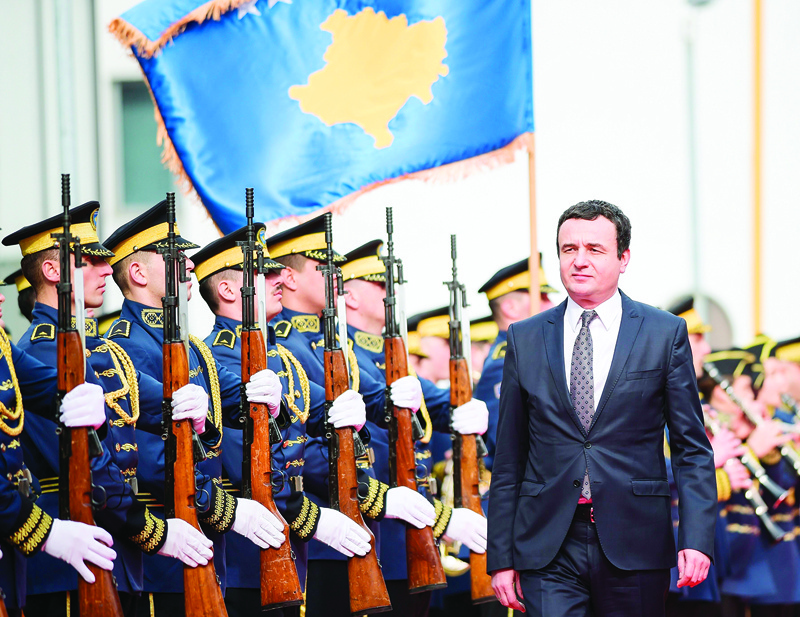
PRISTINA: Albin Kurti has seen prison bars, led street riots and unleashed tear gas in parliament: now the unpredictable politician is Kosovo's prime minister, heralding a new chapter for the young democracy. Once dubbed 'Kosovo's Che Guevara' for his radical antics, the 44-year-old was named PM on Monday after his left-wing Vetevendosje party forged a coalition with the centre-right Democratic League of Kosovo (LDK). The two former opposition camps had won October 2018 polls but it took four months of tense horse-trading over government posts to reach a deal to form a government.
Mixing a left-wing agenda with fervent nationalism, Kurti has long been an insurgent force in Kosovo politics. His rise to the top marks a historic defeat of the ex-guerrillas who have held sway over the former Serbian province since it broke away from Belgrade in 2008. Kurti and other critics have long accused those leaders of spreading corruption and nepotism as ordinary Kosovars suffer in one of Europe's poorest corners.
Riots, tear gas
The former student activist first gained fame on the streets, organizing protests in the 1990s against the Serbian regime's repression of Kosovo's ethnic Albanian majority. The activism landed Kurti in a Serbian jail for two years when he was in his 20s. After the province broke away from Serbia in the 1998-99 war, Kurti became a leading critic of both local leaders and the international community for its outsized influence.
Now he needs to convince the West he is no longer the radical whose supporters were rioting in the streets not so long ago. Vetevendosje, which means "self-determination" in Albanian, has flexed its muscles over the years with massive rallies that have sometimes veered into violence.
Some of the worst incidents around a decade ago saw supporters flip vehicles belonging to EULEX, the European Union's rule of law mission in Kosovo. On several occasions in 2018, Kurti's lawmakers protested vote outcomes by unleashing tear gas inside the parliament. But in an interview with AFP in 2018, he rejected the "radical" and "nationalist" labels, saying his group has been better characterized as social democratic since 2013. "One could say that I am a romantic person but I am not a chauvinist," he added.
Reaching out to Serbs
As prime minister, Kurti will be under heavy pressure from the West to revive a deadlocked dialogue with Belgrade aimed at resolving their "frozen conflict". Serbia still rejects Kosovo's independence and has blocked its efforts to secure full global recognition. Their lingering hostility is a source of frequent tension in the war-scarred region. Kurti told lawmakers on Monday he would take charge of the EU-led talks with Serbia that were previously run by President Hashim Thaci, his main political enemy.
Kurti said earlier he would start by reaching out to Kosovo Serbs, and then consult the EU about how to prepare for a new dialogue with Belgrade. "We have to prepare it well. We cannot afford to have another failure," he said. Controversially, Kurti was once a vocal advocate of merging Albanian-majority Kosovo and Albania, though he said recently that now is not the right time. Albania's red-and-black flag however still dominates his party's rallies, smothering the blue and yellow colors of Kosovo. Supporters also sing Albania's national anthem instead of their own. - AFP










